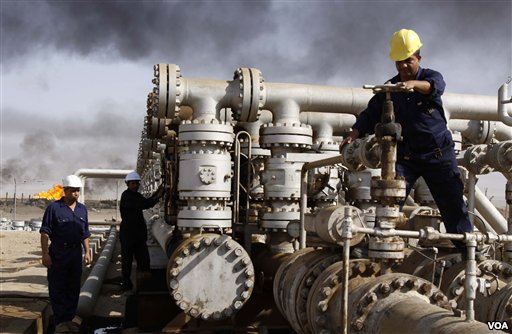The Oil and Gas Industry is one of the most hazardous and dangerous places to work. Those who are employed within the industry need specialist skills and training in order to minimise the risks. The importance of health and safety aboard an oil rig should never be under estimated, whether onshore or offshore.

All workers have a right to work in an environment where risks to their health and safety are properly controlled and monitored. The operator or owner of any offshore or onshore installation is responsible for health and safety although the employee has their own responsibilities too.
There are many levels of health and safety training and all employees working in any hazardous environment will be required to undergo training. Training will be tackled in stages starting with an introduction before moving on to more job specific sectors.
The introduction to health and safety in the oil and gas industry will start with three main topics:
The International Oil and Gas Industry – takes a look at the hazardous nature of working in this industry and work activities. It will address the processes, equipment and activities involved in the oil and gas production process.
Control of Workplace Hazards – This will ask the question of HOW incidents and accidents may result and what measure and controls can be taken to avoid these risks.
The Management of Health and Safety – This sector will look at WHY accidents occur and how risk can be assessed and managed to maintain a safe working environment.
There have been three major oil disasters in our history and each one caused loss of life and unfathomable damaged to our natural world and eco-system. The oil and gas industry have learned a lot since then and now health and safety is of the highest and strictest standards. A recent safety report in 2012 found that the health and safety aboard these offshore rigs has significantly improved.
In terms of safety performance, the report found:
ü Despite the hazardous nature of this industry, non-fatal accidents in this sector were found to be the 3rd best performer in the UK. It displayed a far better safety record than the public sector as well as retail and general manufacturing industries. Only finance and business performed better.
ü Just two years into a three year programme to reduce HCRs (hydrocarbon releases) by 50%, the industry has seen a 40% reduction in significant releases. This gives superb confidence that the target can be reached in the remaining year.
ü Significant and major hydrocarbon releases (HCRs) for 2011’2012 are now at an ALL TIME LOW.
ü An independently verified report has found that here has been an 80% improvement with regard to standards of safety and critical equipment.
Regulating the oil and gas industry
HSE are the government body responsible for regulating the industry with regards to health and safety risks.
For more information about oil and gas industry health and safety law and legislation you can find a fully comprehensive guide and list of regulation acts at: www.hse.gov.uk/offshore/law.htm
Featured images:
License: Creative Commons image source
Guest post written by Ewan Harrison, drafting health and safety documents for the perfluoroelastomer industry.






